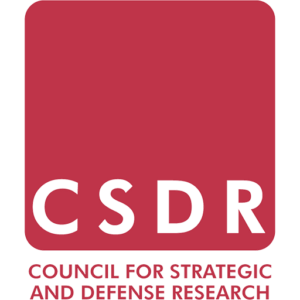In a recent media briefing, Russian Foreign Minister Sergey Lavrov called for adding India to Afghan QUAD. The Russia-China-Iran-Pakistan Quadripartite Group on Afghanistan was established to strengthen engagement with the Taliban regime. Addressing the media, Lavrov asserted that India’s addition would be the “right thing to do in Afghanistan”, and further advocated for enhancing Shanghai Cooperation Organization (SCO), leveraging the platform to improve Indo-Pak relations.
Although New Delhi has yet to officially respond to this proposal, Lavrov’s “batting” for India’s inclusion has sparked varied reactions—eliciting enthusiasm in Indian media while drawing skepticism elsewhere. The South China Morning Post noted that India would likely be reluctant to engage with its “rivals” and might therefore reject “a coalition that clashes with its strategic calculus.”
Lavrov’s remarks come just a week after the ‘historic meeting’ between Indian Foreign Secretary Vikram Misri and Taliban Foreign Minister Mawlawi Amir Khan Muttaqi in Dubai—a development that has caused palpable discomfort in Rawalpindi and fueled speculation over whether tensions with Pakistan have nudged Kabul closer to New Delhi. The prospect of India’s growing influence in Afghanistan has also raised broader concerns, with Pakistani analysts questioning whether this shift could further strain already fraught ties between Islamabad and Kabul.
Strategic Calculus: India’s Evolving Stakes in the Afghan Game
The timing of Lavrov’s “overtures” is particularly striking, as it coincides with what analysts describe as a historic shift in New Delhi’s approach toward the Taliban—one that signals a growing willingness to position itself as a regional stakeholder. For decades, India has viewed the Taliban as a “sheer terrorist organisation” and firmly rejected the Good Taliban vs. Bad Taliban schism. This position kept New Delhi out of several international negotiations on Afghanistan.
However, its recent move to open direct channels of engagement with the Taliban marks a notable departure from the policy that guided its fourth withdrawal from Kabul following the Taliban’s takeover in August 2021. At the time, India abruptly distanced itself from Afghanistan in the wake of the U.S. withdrawal—shutting down its embassy, imposing a strict visa moratorium, and effectively “closing its doors” on the Afghan people, despite deep-rooted historical and civilizational ties. Given its longstanding perception of the Taliban as a proxy of Islamabad and the enduring scars of terrorism, New Delhi’s distrust towards the Taliban and reluctance to engage was hardly surprising.
Despite persistent opposition to the “oppressive Taliban” regime, there has been a growing realization that a prolonged absence from Afghanistan could lead to the erosion of goodwill cultivated through decades of developmental investment and civilizational ties with the country. This could have prompted the BJP-led government to loosen the moral and ideological moorings that previously kept it distanced from the Taliban.
India’s wait-and-watch approach since 2021 has revealed two key factors enabling this shift. First, the Taliban has largely adhered to its assurances of “reasonably handling” India’s security concerns. Second, Pakistan’s “strategic depth” in Afghanistan appears weakened amid deteriorating ties with the Taliban. Pakistan now finds itself blaming the Taliban for its leniency toward and support for the banned militant group Tehreek-i-Taliban Pakistan (TTP), which has contributed to rising terrorism and mounting security challenges. In response, Islamabad has launched a “comprehensive anti-terror operation” against the TTP.
Meanwhile, the Taliban has grown increasingly assertive against Pakistan on multiple fronts, including its refusal to recognize the Durand Line and its objection to the use of Pakistani airspace for U.S. drone strikes. Additionally, amid international sanctions, banking restrictions, and worsening economic conditions, Pakistan’s capacity to support Afghanistan has diminished.
In light of these developments, New Delhi sees an opportunity to cautiously separate the Taliban from the “Pakistani circle of reasoning.” By decoupling engagement from endorsement (or official recognition) of the Taliban, India gains a window to reconnect with the Afghan people and revive its humanitarian and developmental initiatives. The real advantage, however, may be India’s new found ability to wave the Taliban card at Pakistan, signaling to Islamabad that it now has more strategic options. Given recent anxieties over the visit of an ISI delegation to a strategic area near the India-Bangladesh border, this leverage would be particularly appealing to Delhi.
Exploring “coincidences of interest” with the Taliban allows India to assert itself as a “significant regional partner” and a key stakeholder—especially after being sidelined in previous Afghan peace negotiations, such as the Doha Deal of 2020. This recalibration was evident in India’s recent participation in a regional Cooperative Initiative Meeting organized by the Taliban.
Balancing Act: Delhi’s Careful Dance Between Opportunity and Risk
The Misri-Muttaqi breakthrough is the result of ‘a slow, incremental policy of cautious engagement’, which will continue to inform India’s Afghanistan policy of “non-interference”. India is unlikely to assume a security role in Afghanistan, realizing that a safe distance and cautious engagement would give it better leverage than any strategic entanglements.
Russia’s invitation to India to join the Afghan Quad comes at a time when regional players are facing mounting challenges in engaging with the Taliban, largely due to persistent security concerns over terrorism. There remains widespread uncertainty over whether the Taliban is taking “visible and verifiable steps” to prevent Afghan territory from being used as a staging ground for attacks against its neighbors.
Russia has long advocated for India’s participation in regional formats on Afghanistan, including the Moscow Format Consultations, to address common security threats. However, since the March 2024 terrorist attack at Moscow’s Crocus City Center—allegedly carried out by the Islamic State of Khorasan Province (ISKP)—Russia has intensified efforts to prevent Afghanistan from becoming a haven for extremist groups. Given the narrowing space for Russia-India strategic convergence, New Delhi is more likely to maintain a bilateral approach rather than aligning itself with a framework shaped by actors whose security priorities do not align with its own.
